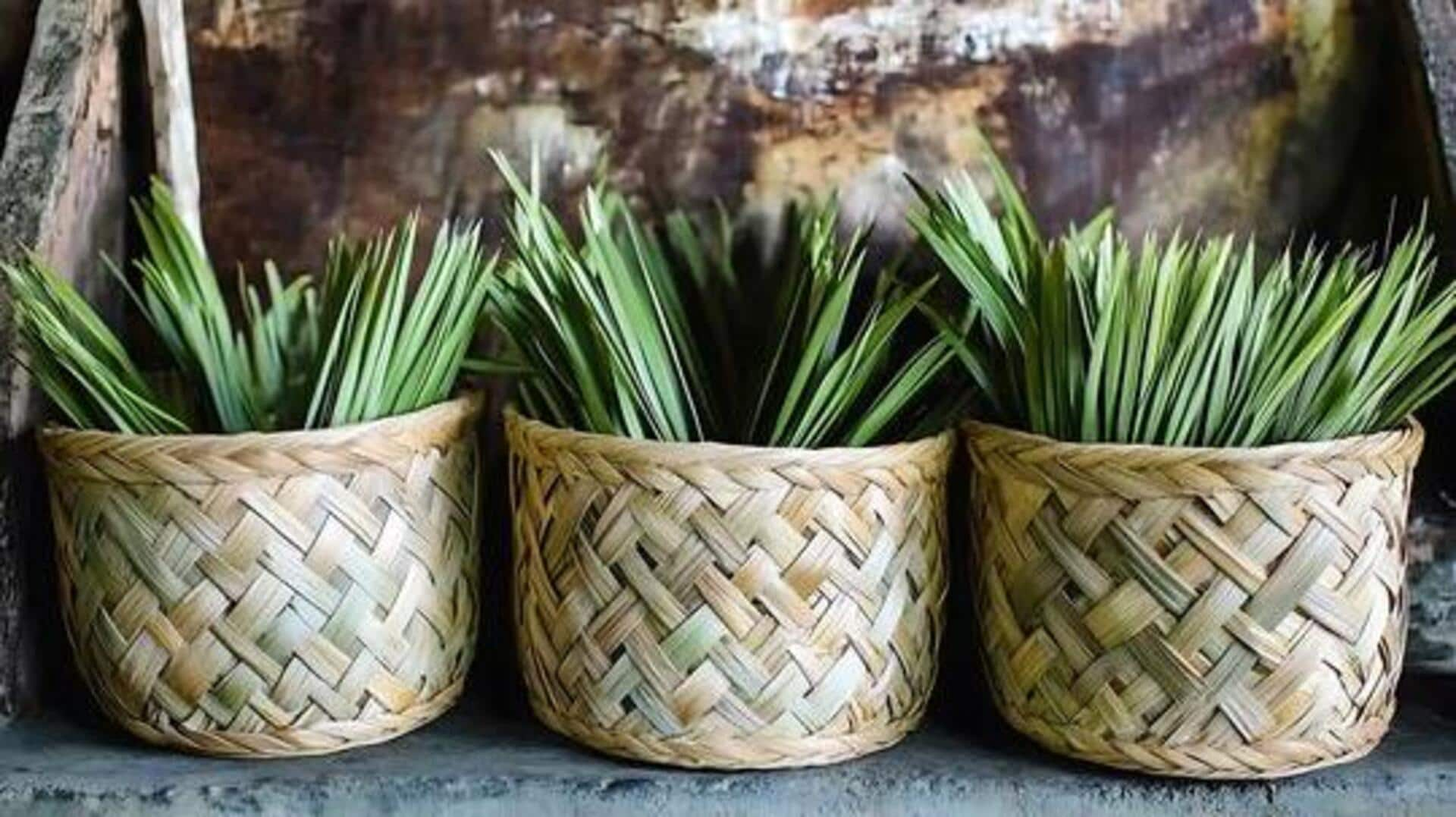
How to make eco-friendly crafts from plants
What's the story
African plant crafts are a sustainable and creative way to connect with nature. Using locally sourced materials, these crafts not only promote eco-friendliness but also preserve cultural traditions. From weaving to carving, the crafts utilize plants that are abundant in various regions of Africa. By engaging in these activities, individuals can create unique items while supporting environmental conservation and community livelihoods.
#1
Weaving with raffia palm
Raffia palm is a versatile plant used for weaving in many African communities. Its long fibers make it ideal for creating baskets, mats, and hats. The process of weaving with raffia requires skill and patience but results in durable and functional items. This craft not only showcases artistic expression but also provides an income source for artisans who sell their creations locally and internationally.
#2
Carving with ebony wood
Ebony wood is famous for its density and rich color, making it perfect for carving intricate designs. Carvers use ebony to craft sculptures, figurines, and decorative pieces that reflect cultural heritage. The process involves careful planning and precision to bring out the details in each piece. Carving with ebony supports sustainable forestry practices when sourced responsibly.
#3
Dyeing fabrics with indigo leaves
Indigo leaves have been used traditionally across Africa to dye fabrics a deep blue color. The natural dyeing process involves fermenting the leaves before applying them onto cloths like cotton or linen. This method not only produces vibrant colors but also reduces the environmental impact compared to synthetic dyes. Fabric dyed with indigo often carries cultural significance as well as aesthetic appeal.
#4
Crafting paper from papyrus reeds
Papyrus reeds provide an eco-friendly alternative for making paper products like notepads or decorative sheets. The papyrus plant grows abundantly near water bodies in Africa, providing a renewable resource for artisans. By processing these reeds into paper, craftsmen contribute towards reducing deforestation while preserving traditional papermaking techniques passed down through generations.